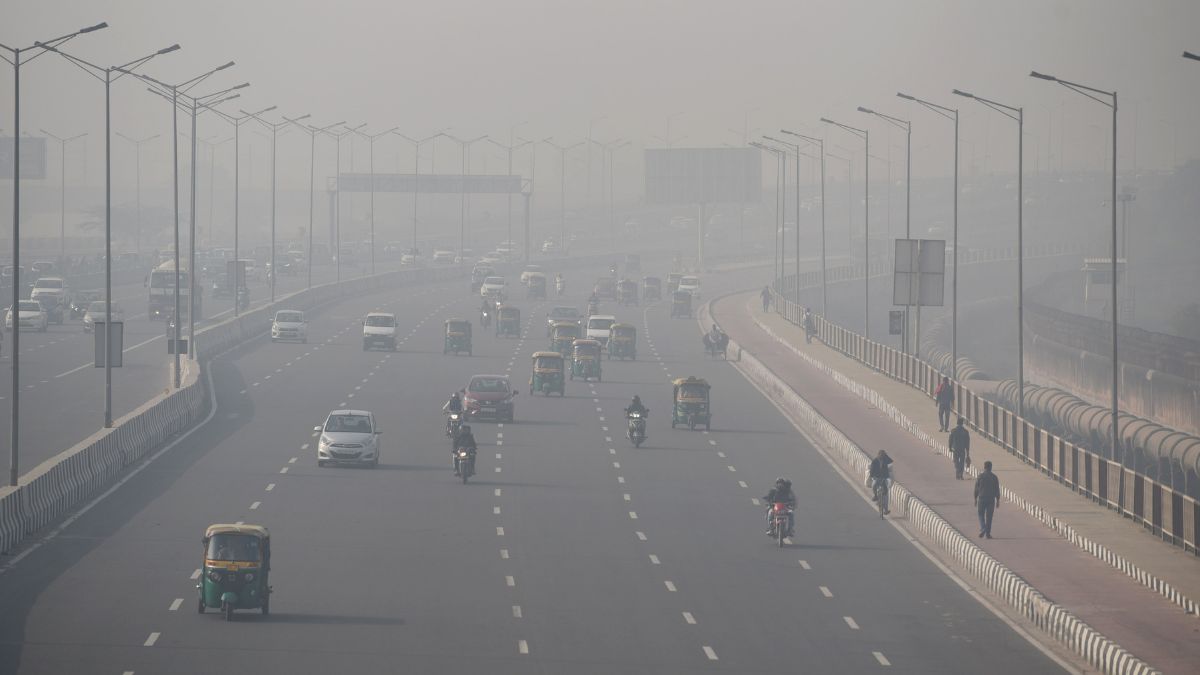- By Prerna Targhotra
- Sat, 05 Nov 2022 01:43 PM (IST)
- Source:JND
DELHI-NCR is suffocating with the worsening air quality day by day. The AQI of Delhi and Noida were recorded to be 472 and 562 respectively categorised in the 'severe' category. Other cities such as Gurugram recorded 539 and Faridabad recorded an Air Quality Index (AQI) of 500 till Friday.
According to a report by the Energy Policy Institute at the Univeristy of Chicago (EPIC), severe levels of air quality or air pollution likely take 2.2 years of the global life expectancy for each person.
Dr Neeraj Agarwal - MBBS, MS-ENT at Pristyn Care, the levels of air pollution in India claimed the lives of more than 1.66 million people on average in 2019. High pollution levels and smog triggered health problems such as asthma attacks among patients and caused acute respiratory distress among children with underdeveloped lungs.
Read below some dangerous health hazards of smog and dipping air quality:
1. Premature Death
As per World Health Organisation, air pollution is one of the leading causes of health problems such as stroke, heart disease lung cancer, asthma, and acute and chronic respiratory disease. Outdoor pollution in rural and urban cities was estimated to result in around 42 million premature deaths globally in 2016.
2. Cardiovascular Diseases
Research by the United States Environmental Protection Agency states that long-term exposures to particular matters and nitrogen oxides can prematurely age blood vessels and contribute to the rapid build-up of calcium in the coronary artery. This buildup results in the restricted flow of blood to the heart and other blood vessels increasing the risk of cardiovascular diseases such as heart attack or stroke.
3. Hypertensive Disorders
According to a report by National Toxicology Program (NTP), long exposures to severe air quality can increase blood pressure and risk of hypertension, especially in pregnant women. Exposure to air pollution can increase inflammation and oxidative stress which may lead to vasoconstriction and vascular remodeling.
4. Lung Diseases
The harmful agents of toxic air pollution can increase asthma or even damage lung function in people. Breathing in harmful air pollutants irritates the passage and can cause coughing, wheezing, chest pain or even asthma episodes.
However, some small steps can help an individual protect themselves from harmful smog and pollution. According to health expert, Dr Neeraj Agarwal at Pristyn Care, usage of face masks particularly N95 is a must. Staying hydrated and consuming food rich in antioxidants and proteins can lower the risk of health problems associated with smog and air pollution. Avoid morning walks, use public transport to reduce the number of vehicles on the road, and choose a healthy lifestyle to prepare your body to fight against the hazardous effect of smog and pollution.

